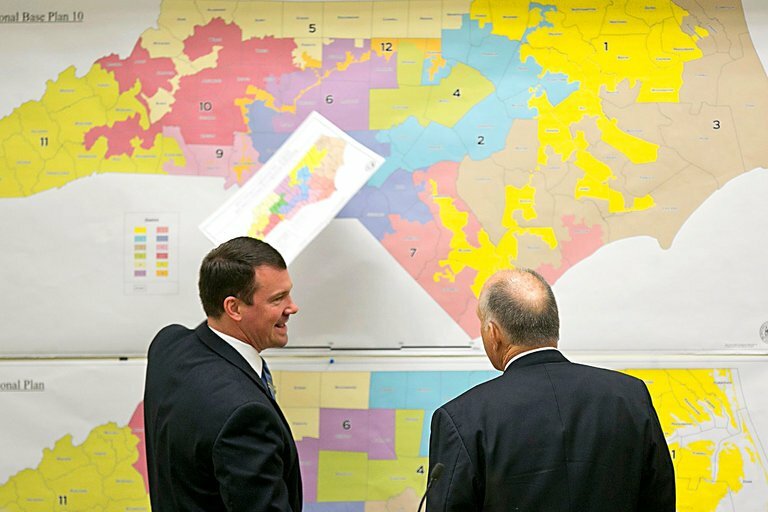In his most recent opinion piece for Carolina Journal, Mitch Kokai discusses the recently concluded arguments for Common Cause v. Lewis. According to Kokai:
Judges in the Common Cause v. Lewis election redistricting trial must answer a relatively simple question: Does the N.C. Constitution limit partisan gerrymandering?
Kokai explains that neither the arguments put forward by the plaintiffs nor the defense fully addressed this question:
Rather than point to provisions within the state constitution that provided an answer, lawyers on both sides seemed fixated on other issues. They spent most of their time either trumpeting or trashing expert analysis of North Carolina’s legislative election maps.
The question is not whether considering partisan advantage is allowed at all, rather, the question is, “how much is too much?” Kokai writes:
The N.C. Supreme Court already has permitted some degree of partisanship in mapmaking, according to defense attorney Phil Strach. He cites the 2002 state redistricting case, Stephenson v. Bartlett. “In the Stephenson case, the North Carolina Supreme Court expressly allowed this,” Strach told the three-judge panel contemplating the Common Cause case. “It said the legislature may consider partisan advantage and incumbency protection in the application of its discretionary redistricting decisions. This question has been put to rest a long time ago.”
Kokai says the plaintiffs did not answer what amount of partisan gerrymandering is too much. According to Strach, that is because there is none:
“When is a district too competitive, or not enough? Is there a point at which the permissible use of partisan advantage — allowed by the state Supreme Court — has veered somehow into something impermissible?”
“…They don’t know the answer to the question because it’s a question that is unanswerable.”
Read the full piece here. Read more on the gerrymandering debate in North Carolina here.

